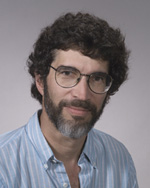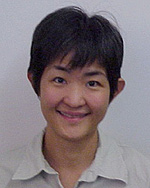Panelist Biographies
Dr. Scott Wolk, Astrophysicist, Smithsonian Astrophysical
Observatory
Dr. Scott Wolk is an Astrophysicist at the Smithsonian Astrophysical
Observatory in Cambridge, Massachusetts. Dr. Wolk was an undergraduate at
Cornell University in Ithaca New York and received his Ph.D. from The State
University of New York at Stony Brook in 1996. His research has involved
work in different fields of astrophysics, including: star formation,
evolution of low mass stars in the vicinity of massive stars, evolution of
circumstellar disks, young brown dwarfs, planetary and cometary X-rays,
isolated neutron stars and X-ray instrumentation.
His Ph.D work concentrated on the study of the relationship between the
rotation of young stars and the presence of disks. After receiving his
Ph.D. Dr. Wolk came directly to the Chandra X-ray Center as a member of the
Science Operations Team. He leads the effort of monitoring and trending
spacecraft performance. Dr. Wolk has worked in most wavelength regimes. He
is currently developing a database of all pre-main sequence stars observed
with both Chandra and NASA's fourth Great Observatory, Spitzer.
Dr. Eric Feigelson, Professor, Astronomy & Astrophysics faculty at Penn State University
Dr. Eric Feigelson was trained in astronomy at Haverford College and
Harvard University during the 1970s. After a post-doctoral position at
MIT's Center for Space Research, he entered the Astronomy & Astrophysics
faculty at Penn State in 1983 where he is now Professor. He has studied
various topics in X-ray astronomy, focusing on its implications for the
formation and early evolution of stars and planets. He also has a
long-standing collaboration with statisticians to improve astronomical data
analysis. He was a John Parker Fellow at Harvard, shared two NASA Group
Achievement Awards, received an NSF Presidential Young Investigator Award,
and a Department certificate for distinguished teaching. He has led the
astronomy undergraduate and public outreach programs at Penn State, and
helps run its Center for Astrostatistics. He has coauthored over 200
articles and 4 books in X-ray astronomy and statistics.
Dr. Feigelson has devoted the past three years to leading the Chandra Orion
Ultradeep Project which provides the most detailed study of a young stellar
cluster and star/planet forming region.
Dr. Joan Najita, Astronomer, National Optical Astronomy Observatories
Joan Najita is an Astronomer at the National Optical Astronomy
Observatories. Her main research interests are in star formation and
the formation and evolution of planetary systems. She has extensive
experience studying the gaseous component of circumstellar disks.
These studies are aimed at understanding the physical mechanisms that
govern star formation and how the evolution of the gaseous component of
disks impacts the resulting planetary system architectures. Joan
received her Ph.D in astronomy from UC Berkeley in 1993. She received a
CfA postdoctoral fellowship and was an astronomer at the Space
Telescope Science Institute before joining the scientific staff at
NOAO in 1998. She is also a recipient of the Annie Jump Cannon Award
in Astronomy.
|
 Dr. Scott Wolk is an Astrophysicist at the Smithsonian Astrophysical
Observatory in Cambridge, Massachusetts. Dr. Wolk was an undergraduate at
Cornell University in Ithaca New York and received his Ph.D. from The State
University of New York at Stony Brook in 1996. His research has involved
work in different fields of astrophysics, including: star formation,
evolution of low mass stars in the vicinity of massive stars, evolution of
circumstellar disks, young brown dwarfs, planetary and cometary X-rays,
isolated neutron stars and X-ray instrumentation.
Dr. Scott Wolk is an Astrophysicist at the Smithsonian Astrophysical
Observatory in Cambridge, Massachusetts. Dr. Wolk was an undergraduate at
Cornell University in Ithaca New York and received his Ph.D. from The State
University of New York at Stony Brook in 1996. His research has involved
work in different fields of astrophysics, including: star formation,
evolution of low mass stars in the vicinity of massive stars, evolution of
circumstellar disks, young brown dwarfs, planetary and cometary X-rays,
isolated neutron stars and X-ray instrumentation. Dr. Eric Feigelson was trained in astronomy at Haverford College and
Harvard University during the 1970s. After a post-doctoral position at
MIT's Center for Space Research, he entered the Astronomy & Astrophysics
faculty at Penn State in 1983 where he is now Professor. He has studied
various topics in X-ray astronomy, focusing on its implications for the
formation and early evolution of stars and planets. He also has a
long-standing collaboration with statisticians to improve astronomical data
analysis. He was a John Parker Fellow at Harvard, shared two NASA Group
Achievement Awards, received an NSF Presidential Young Investigator Award,
and a Department certificate for distinguished teaching. He has led the
astronomy undergraduate and public outreach programs at Penn State, and
helps run its Center for Astrostatistics. He has coauthored over 200
articles and 4 books in X-ray astronomy and statistics.
Dr. Eric Feigelson was trained in astronomy at Haverford College and
Harvard University during the 1970s. After a post-doctoral position at
MIT's Center for Space Research, he entered the Astronomy & Astrophysics
faculty at Penn State in 1983 where he is now Professor. He has studied
various topics in X-ray astronomy, focusing on its implications for the
formation and early evolution of stars and planets. He also has a
long-standing collaboration with statisticians to improve astronomical data
analysis. He was a John Parker Fellow at Harvard, shared two NASA Group
Achievement Awards, received an NSF Presidential Young Investigator Award,
and a Department certificate for distinguished teaching. He has led the
astronomy undergraduate and public outreach programs at Penn State, and
helps run its Center for Astrostatistics. He has coauthored over 200
articles and 4 books in X-ray astronomy and statistics. Joan Najita is an Astronomer at the National Optical Astronomy
Observatories. Her main research interests are in star formation and
the formation and evolution of planetary systems. She has extensive
experience studying the gaseous component of circumstellar disks.
These studies are aimed at understanding the physical mechanisms that
govern star formation and how the evolution of the gaseous component of
disks impacts the resulting planetary system architectures. Joan
received her Ph.D in astronomy from UC Berkeley in 1993. She received a
CfA postdoctoral fellowship and was an astronomer at the Space
Telescope Science Institute before joining the scientific staff at
NOAO in 1998. She is also a recipient of the Annie Jump Cannon Award
in Astronomy.
Joan Najita is an Astronomer at the National Optical Astronomy
Observatories. Her main research interests are in star formation and
the formation and evolution of planetary systems. She has extensive
experience studying the gaseous component of circumstellar disks.
These studies are aimed at understanding the physical mechanisms that
govern star formation and how the evolution of the gaseous component of
disks impacts the resulting planetary system architectures. Joan
received her Ph.D in astronomy from UC Berkeley in 1993. She received a
CfA postdoctoral fellowship and was an astronomer at the Space
Telescope Science Institute before joining the scientific staff at
NOAO in 1998. She is also a recipient of the Annie Jump Cannon Award
in Astronomy.